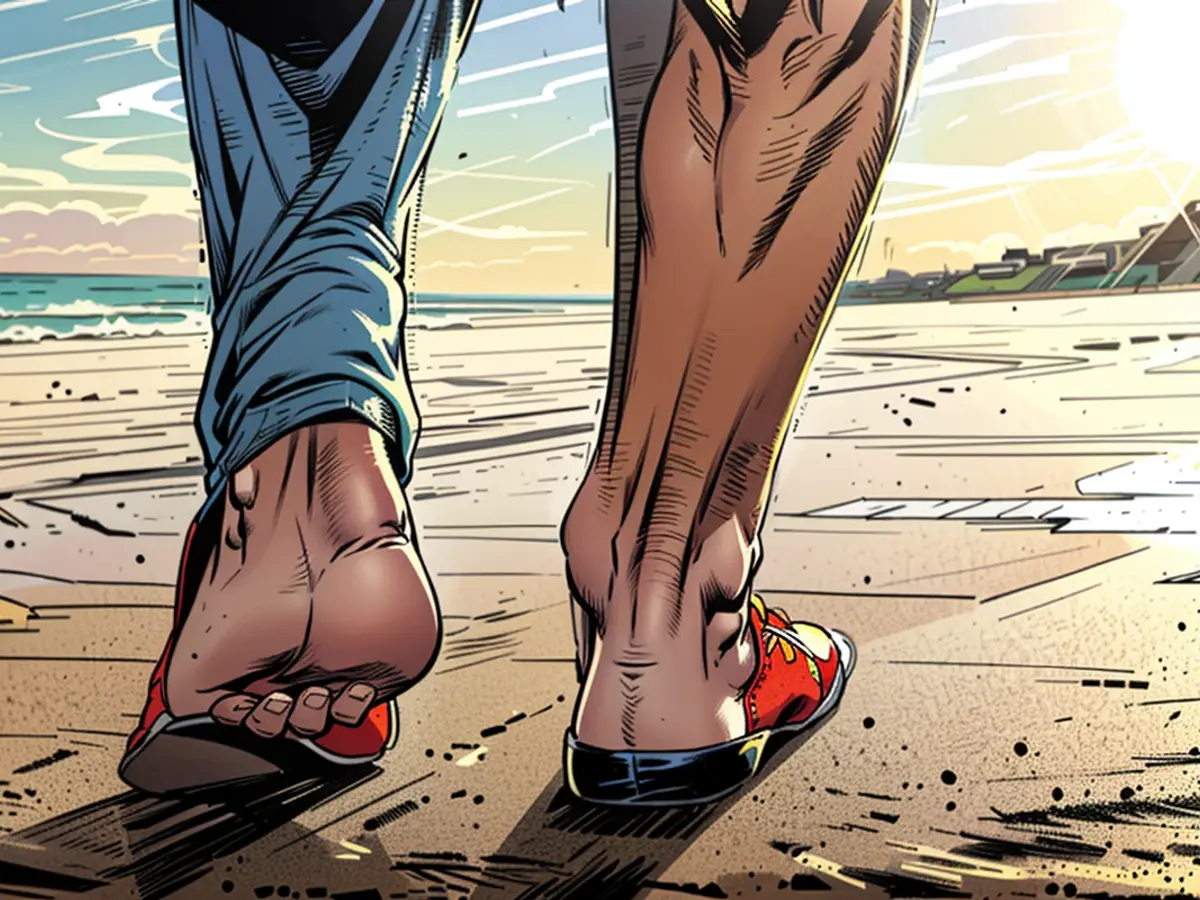Is walking barefoot really that healthy?
Running barefoot is healthy - not just for the feet, but for the entire body. However, running without shoes is not suitable for everyone. Who should keep their shoes on and why, explains an expert.
When walking on the beach or running over grass, it's worth taking off your shoes. The reason: "When we run barefoot, we train our foot muscles," says orthopedist Matthias Manke from Bochum. In particular, the muscles on the sole of the foot are activated when running without shoes. This is important because "if we don't train them, they will atrophy," says the orthopedist.
Moreover, there are many free nerves in the feet that pick up impulses. The body therefore receives new signals. And this can have a positive effect. For example, neck, back, or lower back pain can be reduced, according to Manke. And not only that: Plantar fasciitis, a often painful bony growth on the heel, often occurs due to untrained foot muscles. Running barefoot can help prevent this.
Children should therefore run without walking shoes or socks as much as possible, according to Manke, to develop their feet naturally.
Who is barefoot running suitable for and who is it not suitable for?
"Barefoot running is actually suitable for everyone," says the doctor. But there are restrictions. For example, for people with polyneuropathy, where the sensation in the feet is reduced or absent. "Then the risk of injury is high because we don't notice that our foot is being damaged." Diabetics should also be careful.
And those who don't regularly run without shoes should not suddenly start running barefoot all day - and should first get their feet used to this different way of walking on grass or at a sandy beach.
Barefoot shoes for everyday use
In general: You don't have to run barefoot exclusively. Our feet need a balance between running in shoes and barefoot walking, says Manke. This is why the doctor, for example, doesn't wear house slippers at home.
By the way: Those who want to strengthen their foot muscles in everyday life can also use special shoes, so-called barefoot shoes with very thin and flexible soles, in which you can also move your toes. "The barefoot shoe is there so that the shoe also protects the foot on rough terrain, but the foot still has to work," explains Manke.
The expert, Matthias Manke, suggests that individuals with conditions such as polyneuropathy or diabetes should continue wearing shoes due to the increased risk of injury from barefoot running, given their reduced or absent foot sensation. Additionally, for those accustomed to running with shoes, a gradual transition to barefoot running is advised to allow their feet to adapt to this new form of walking.
Regarding everyday use, Manke emphasizes the need for a balance between wearing shoes and walking barefoot for foot health. He personally opts for avoiding house slippers and prefers wearing barefoot shoes with thin and flexible soles, which allow for toe movement while still protecting the foot on uneven terrain.







